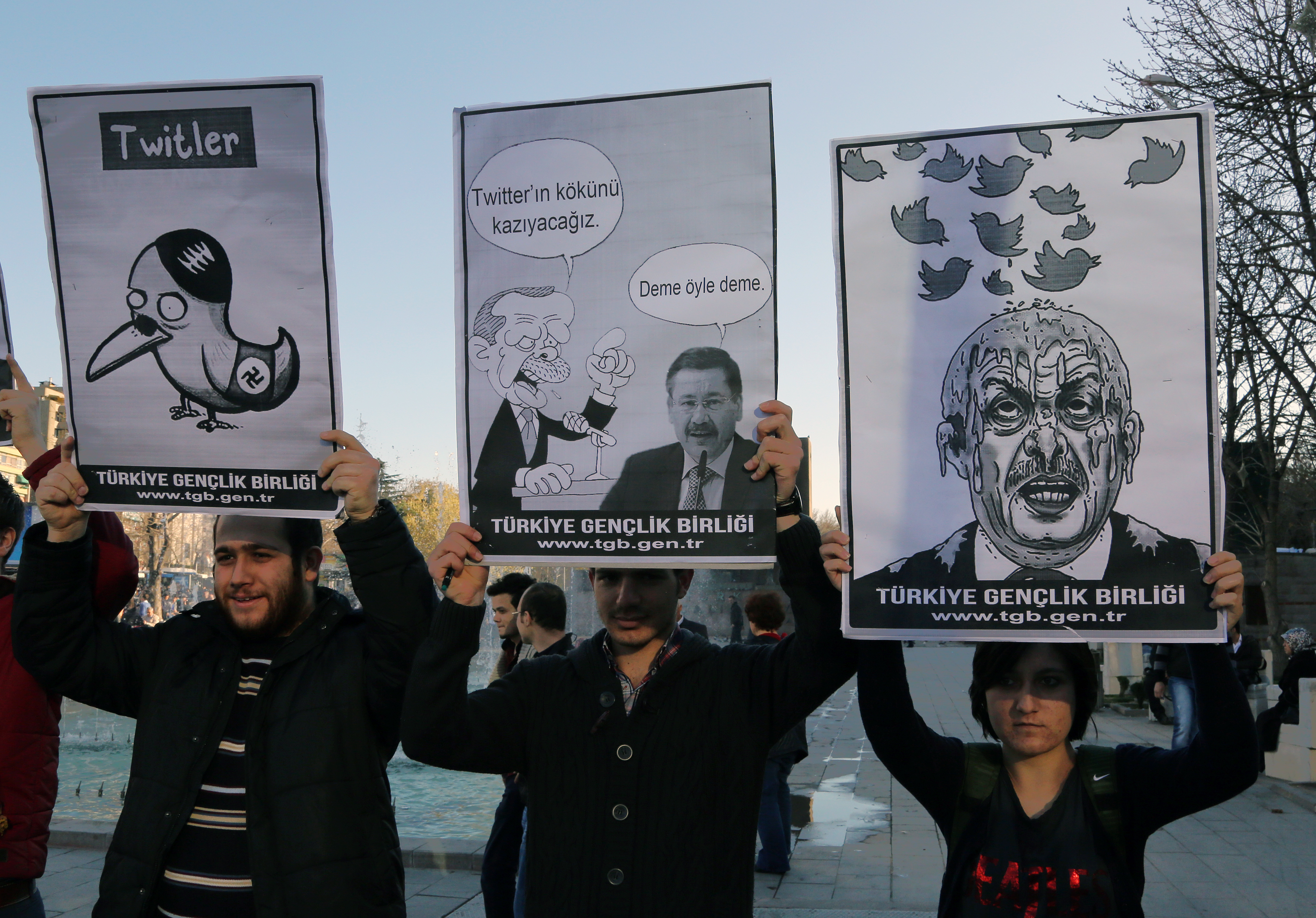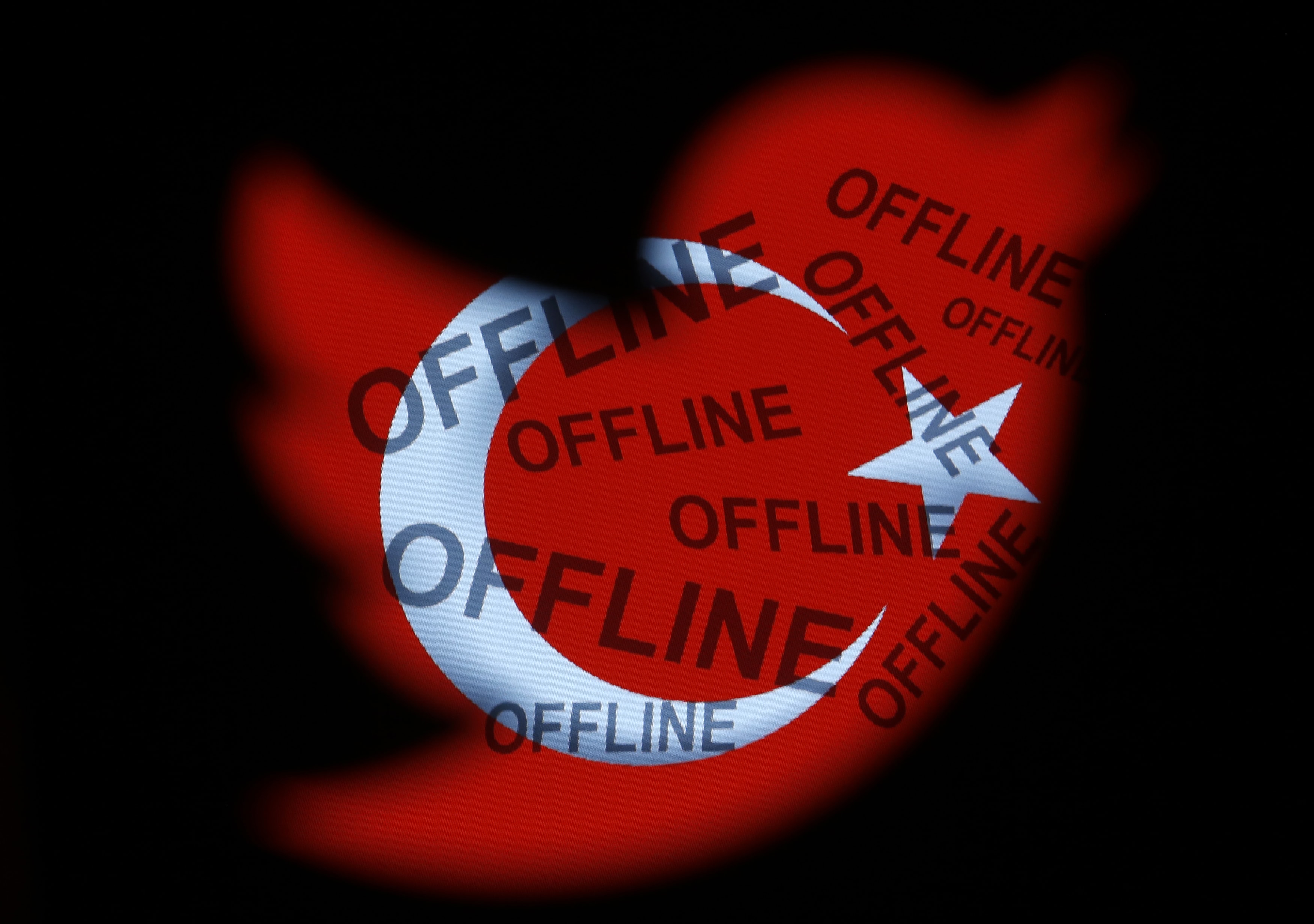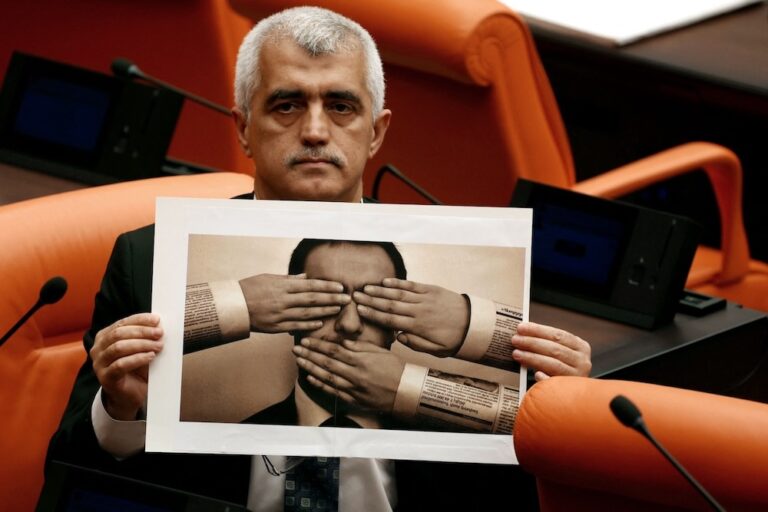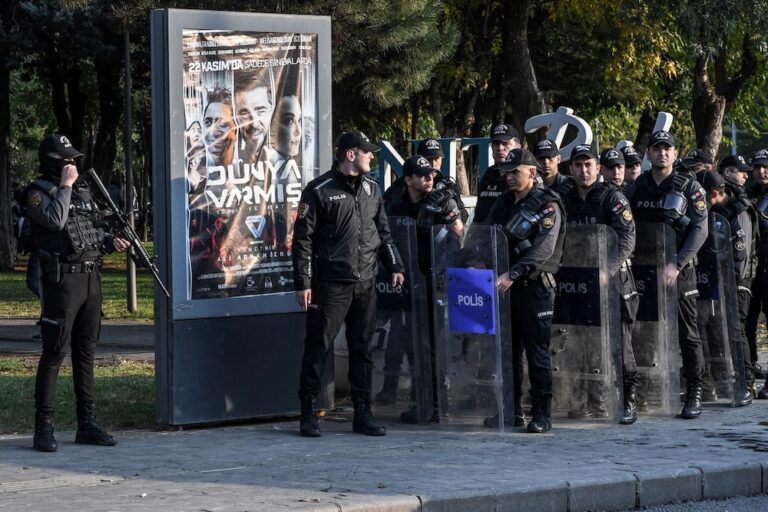The Twitter shutdown came six weeks after the Turkish Parliament passed a series of amendments to existing Internet legislation, known as Law 5651, that impose alarming restrictions on digital liberties and freedom of expression.
The 140-character lyric of the universal songbird has been muzzled in Turkey. Shortly after midnight on 21 March, Twitter was shut down following an order by Prime Minister Recep Tayyip Erdoğan, who has described Twitter as “threatening national security.”
The decision was announced on 20 March during an election campaign in the city of Bursa, says the Committee to Protect Journalists (CPJ). According to Hürriyet Daily News, the prime minister mentioned an unspecified court order upon proclaiming, “We’ll eradicate Twitter. I don’t care what the international community says. Everyone will witness the power of the Turkish Republic.”
The shutdown comes six weeks after the Turkish Parliament passed a series of amendments to existing Internet legislation, known as Law 5651, that impose alarming restrictions on digital liberties and freedom of expression.
The amendments adopted on 5 February would allow the authorities to block any Internet content that “violates privacy” or is “discriminatory or insulting”, according to Reporters Without Borders (RSF). Soon, the blockages could extend to Facebook and YouTube as well, according to Erdoğan, who publically threatened to shutdown the popular websites on 7 March.
Press freedom groups like the International Federation of Journalists (IFJ) note that the Twitter shutdown comes after several weeks of users posting documents and voice recordings “…purportedly showing evidence of corruption among Erdoğan’s inner circle and family.”
But Turkey’s Information Technologies and Communications Council (BTK) says the “preventive suspension” of access to Twitter is in fact a response to complaints that certain content was “violating privacy” and “attacking persons”, according to RSF.
Regardless of the motivation to shut down the popular social networking site, free expression defenders from around the world have decried Erdoğan latest move.
Elif Shafak, a Turkish author and member of PEN recently said, “The Twitter ban is yet another attempt to stifle freedom of speech in a country where books can be censored, translators sued, journalists targeted, and where thought can be a crime. Turkey’s peoples, including the young, women, minorities, all deserve a mature democracy. It is unacceptable, and ultimately unworkable, to enforce such a ban in the digital age.”
In a similar vein, Barbara Trionfi, the Press Freedom Manager for the International Press Institute (IPI) notes that “Efforts to shut down Twitter in order to control the news are not only ultimately futile – they sadly move Turkey away from the embrace of human rights and the rule of law, and closer to autocracy. It’s been said that censorship is the lobby of dictatorship. What’s the point of democracy if you won’t give voters the possibility of making an informed decision?”
Outcry against Twitter’s suspension has not been limited to formal statements, however.
Twitter in Ankara. People are tweeting in the street. #ErdoganBlockedTwitter #DictatorErdogan pic.twitter.com/AOz6wpB0yN” via Andre Sprang
— Melanie Majeski (@mellmaj) March 23, 2014
On 24 March, The IPS Communication Foundation (Bianet) reported that the Turkish Journalists Association has filed a lawsuit against the BTK—Turkey’s Information Technologies and Communications Council. Their suit requests for the ban to be lifted on the grounds that “the ban is against freedom of the press and expression.”
Artists have also expressed their extreme discontent with Turkey’s latest digital restriction. Drawings depicting Erdoğan being defecated on or chased by birds resembling Twitter symbol are making rounds on the Internet, often alongside hashtags like #TwitterisbannedinTurkey #OccupyTwitter and #DictatorErdogan. See this post by Bianet for a compilation of different images.
Many Twitter users have been able to circumvent the ban in Turkey using Virtual Private Networks (VPNs) or The Onion Router (TOR). In fact, the Wall Street Journal reports that tweets sent in Turkey were up by 138% on 21 March, according to data published by Brandwatch, a firm that analyzes social-media analytics.
#TwitterisBannedinTurkey but in the early hours of #censorship, there were millions of protest tweets… “show is over” :)
— gztrn ✌ (@Obefintlig) March 21, 2014
Among those who used the Twitter platform itself to protest the ban is Turkish President Abdullah Gül, who called the Twitter ban unacceptable, according to Reuters. He said in a tweet: “There is no way that closing down social media platforms can be approved,” CPJ reports.
For individuals in Turkey who have not found a way to circumvent the Twitter ban, RSF has compiled a list of tips on how to access the social media platform. See the list here.
Luckily, Twitter users may not have to resort to circumvention measures for much longer. The New York Times reports that on 26 March, a court in Ankara ruled that the government could not ban Twitter, and ordered the country’s telecommunications authority to restore access to the platform.
While legal experts say that the telecommunications authority has the right to appeal the ruling, they must still comply by lifting the ban, notes The New York Times. The Justice Ministry has stated that the telecommunications authority has 30 days to comply.

Members of the Turkish Youth Union hold cartoons depicting Turkey’s Prime Minister Recep Tayyip Erdogan during a protest against a ban on Twitter, in Ankara, 21 March 2014.AP Photo/Burhan Ozbilici



